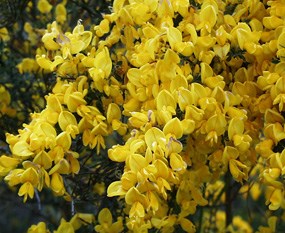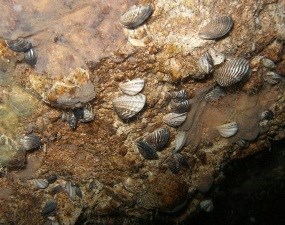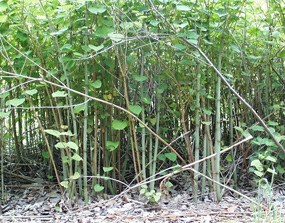
is an invasive exotic plant. NPS Exotic Plant Management Team A nonnative species is a species that arrives in new habitats as a direct or indirect result of human activities. They are sometimes called “exotic” or “alien” species. Some species are introduced intentionally (like llamas) and others, like thistles, arrive unintentionally. For examples of introduced plants, 
NPS Photo Some Nonnatives are Harmful: Some nonnative species cause no problems, but others can be harmful to native or endangered species, ecosystems, or even human health. Examples:

NPS Exotic Plant Management Team More than 200 plant species in Olympic National Park are nonnative. About 70 of those species are found within the park’s wilderness. Established nonnative plants can affect natural succession, plant community structure, geophysical processes, and displace or eliminate native species. Some nonnative plants are not a threat, but a few species could cause irreversible impacts such as eliminating rare native species. For more on nonnative plants with negative impacts, see the Invasive Plants page. |
Last updated: March 28, 2025
